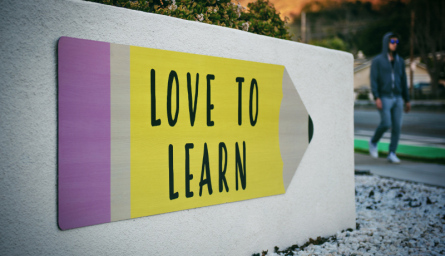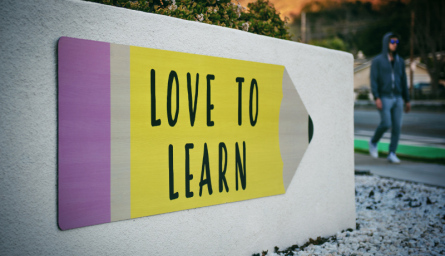When I travelled to Kathmandu, Nepal in 2014, two things struck me instantly. Firstly, the culture of the city was unlike anything I have ever seen or experienced. Secondly, all the children that attended Shubhakamana Academy (near Taudaha Lake in the Kathmandu Valley) had very high ambitions. You would ask each of them in turn what their dream job would be and, one-by-one, they came back with aspirations. Doctor, nurse, scientist, joining the military. However, one job was mentioned more than any other: these children wanted to grow up and be teachers. This speaks volumes. In one of the most impoverished states on Earth, the dream job was to be an educator. These children wanted a vocation where they could help their community. This exemplifies the importance of education and the importance of enabling the right and ability to learn. This Right to Learn is vital, not simply in the UK, but worldwide.
There is an unshakeable relationship between dignity and education. To become less ignorant of the world and to learn a new skill or idea is to improve oneself. People can see more positively the prospects of a satisfying life if they are interested and invested in their vocation. This stems from the self-worth that education delivers. When someone develops a core understanding of a certain area, that often leads to the development of a passion and a commitment to success in that area. This sense and level of self-worth is linked directly to any concept of human dignity. This relationship with dignity has been recognised by the United Nations, and the international community, with the International Covenant of Economic, Social and Cultural Rights. Article 13 of the Covenant provides that:
“The States Parties to the present Covenant recognize the right of everyone to education. They agree that education shall be directed to the full development of the human personality and the sense of its dignity,and shall strengthen the respect for human rights and fundamental freedoms.”
Dignity sits at the heart of all human rights law. Human rights exist to uphold the dignity of each individual in the world. The above Covenant emphasises the commitment of the United Nations and the international community to ensure that human dignity can be developed through education. This is a central core of my conception of the Right to Learn. Everything we do as human beings should have, as its goal, a practical approach which recognises and supports the dignity of each individual. Everyone is deserving of such dignity by virtue of being human. Using education to ensure the upholding of everyone’s dignity is a legitimate and vital objective – one in which I believe all should share a passionate interest. The Right to Learn is fundamental to any upholding of human dignity.
History teaches us an important lesson about the relationship between dignity and the Right to Learn. In 2019, I was lucky enough to travel to Berlin. Whilst there, I visited a square called Bebelplatz. This square is surrounded by Humboldt University’s law faculty. On May 10th 1933, nationalist students, members of the Nazi Student’ League, the SS and Hitler Youth groups, urged on by an inflammatory speech from Hitler’s propaganda minister Joseph Goebbels, burned almost 20,000 books. These included books and archives from the library of the nearby Institute of Sexology, headed up by Magnus Hirschfeld, a pioneer, researcher, and campaigner for LGBT rights in Weimar Germany.
This is what happens when Governments and political movements wants to dictate and control education and use their force to infringe the dignity of individuals. The Nazis’ book burning campaigns were orchestrated to remove elements of history and to delegitimise all accounts which disagreed with the Third Reich’s propaganda-heavy version of events. Today, a plaque in Bebelplatz bears the words of the 19th century playwright Heinrich Heine, ‘where they burn books, they will in the end also burn people’ – prophetic of the Holocaust that the Nazis perpetrated.
This is not just a warning from history – there are other examples of state governments, as well as fundamentalist and armed groups, using their pressure and (sometimes) physical violence to limit and block education from certain groups, thus infringing their dignity and human rights. One of the most high-profile examples of this has been the Taliban in certain parts of Afghanistan and Pakistan. The Taliban have operated to prevent girls and young women from attending schools or educational establishments. Perhaps the best- known incident was the attempted assassination of the teenage schoolgirl and educational activist Malala Yousafzai who was shot in the head in October 2012 by a Taliban gunman on a bus after taking an exam. She was shot for both wanting to be educated herself and for other young women to have that educational opportunity. She was shot for wanting to exercise her right to dignity- and after she was transferred for medical treatment to the UK, she became a champion of the right to education, and women’s and children’s rights, through setting up the not-for-profit Malala fund, supporting programmes across Asia.
The Bebelplatz and Malala events are extreme examples of attempts to deny the Right to Learn and break the link between education and human dignity. However, there are other relevant examples to varying degrees and extents in other countries across the world today. Those who feel passionately in Britain about the Right to Learn may not face violence or physical threats or pressures, but there remain real issues of inequality and barriers to social justice and mobility for a variety of groups from the early years through to schools and onwards to colleges, universities and adult education. There remain widespread failings and challenges across the education system, and this was before the Covid-19 pandemic and its consequences.
In terms of university participation, access to higher education is still often disproportionately favoured towards white, middle and upper-class, students. A recent BBC investigation found a huge difference in university participation between students who had received free-school meals and those who did not. 26% of students who received free-school meals went onto higher education, whereas as many as 45% who did not receive free-school meals went onto higher education. There is an even broader difference when looking at white, British, males who received free-school meals, of which only 13% went on to university. This seems to stem from the apparent ‘postcode lottery’ which exists for those attending secondary schools. Generally, those from lower socio-economic backgrounds (thus are more likely to be claiming free-school meals) attend schools which get the weakest results. This may not happen in every case, but it does impact a lot of school-students. There needs to be a fundamental change in the way in which schools are funded, and how they are assessed, to ensure that no child is left behind. However, these changes will not impact upon the educational prospects of those who have recently left secondary school. This is why it is so important to champion inclusive and holistic programmes beyond 16 or 18, as last November’s Lifelong Learning Commission advocated, and which a number of other groups and Commissions are also advocating.
Dignity and life chances must be a core aim of the current Right to Learn campaign. We should not dismiss the dignity that people can achieve through education because they have reached adulthood. All of these issues are going to be exacerbated by the Covid-19 pandemic. The majority of school-students have missed several months of school this year, with school closures on a localised basis becoming more likely every day. This will be worsened by the recent government announcement that laptops for children having to study at home will no longer be subsidised for schools to purchase. It is also worth noting that Covid-19 seems to be more prevalent in areas where large numbers of people from lower socio-economic backgrounds live. This is likely to impact upon those people who are already more likely to be studying in a school which achieves weaker results than its equivalents in a different area. Furthermore, many apprentices are not going to be able to complete their full apprenticeship because of the Covid-19 restrictions. This will leave many with very few, or even no, qualifications to take forward into their working life. The sum of this is that many people will miss opportunities in their younger life because of the pandemic. Therefore, lifelong learning must be a key part of the Right to Learn. It is unfair, and is an infringement of human dignity, to deny people the Right to Learn because circumstances were against them in childhood and adolescence.
Lifelong learning takes on an even more important role in light of Covid-19. We have to give people the opportunity to re-train and learn new skills because unemployment will increase and people will be denied a fair opportunity in their early-years education. The Right to Learn campaign can make this argument. We must ensure that all people in the United Kingdom are given equal opportunity to ensure their dignity through the pursuit of education and learning.


